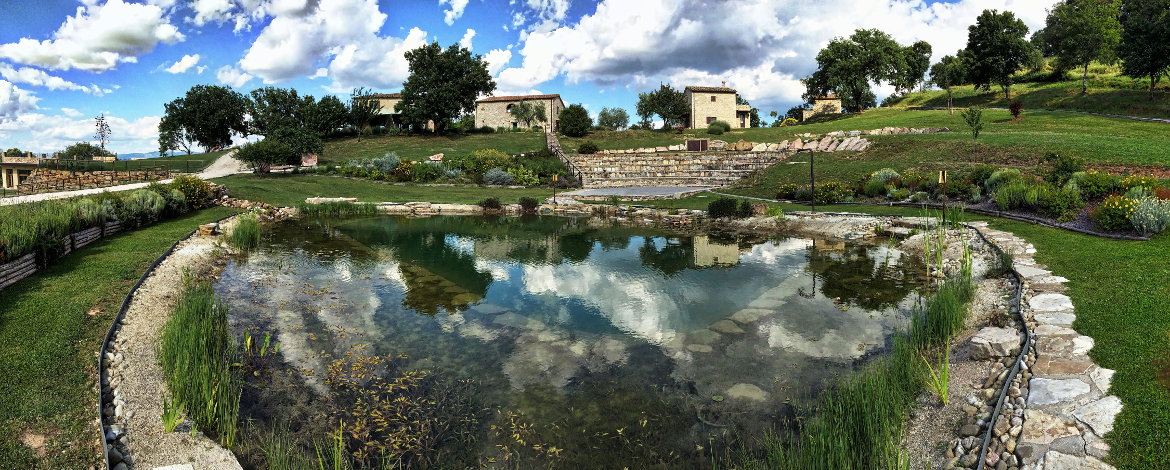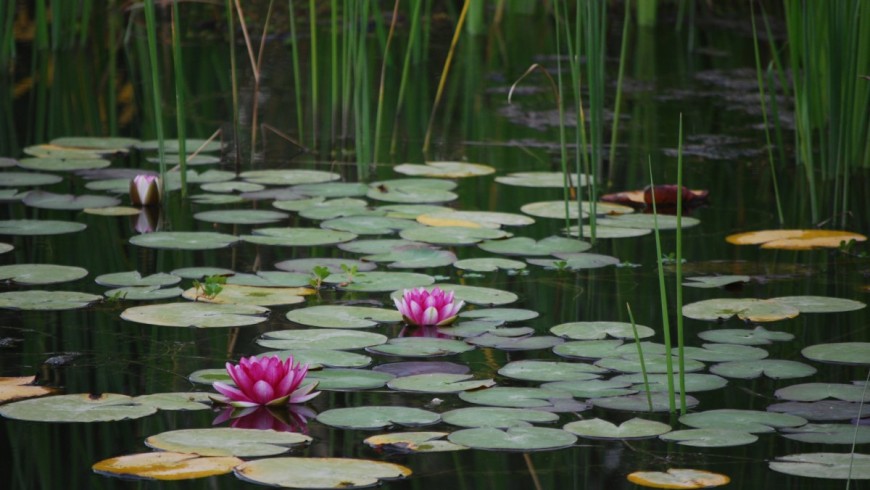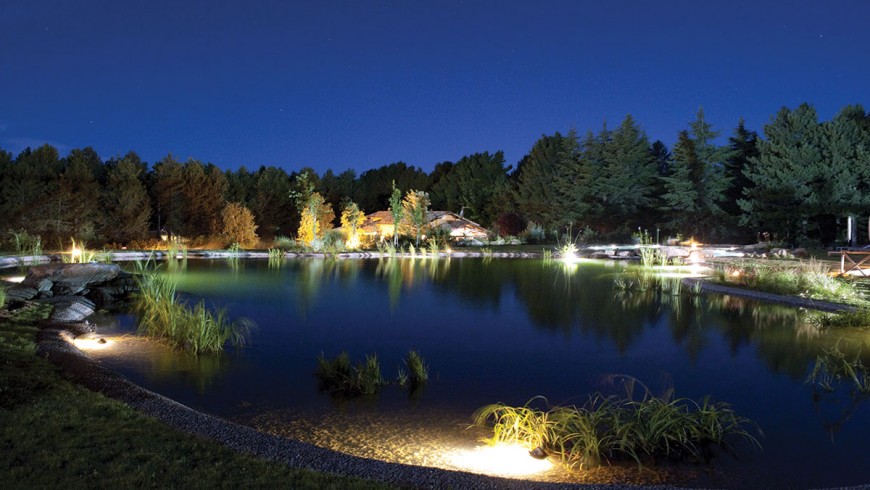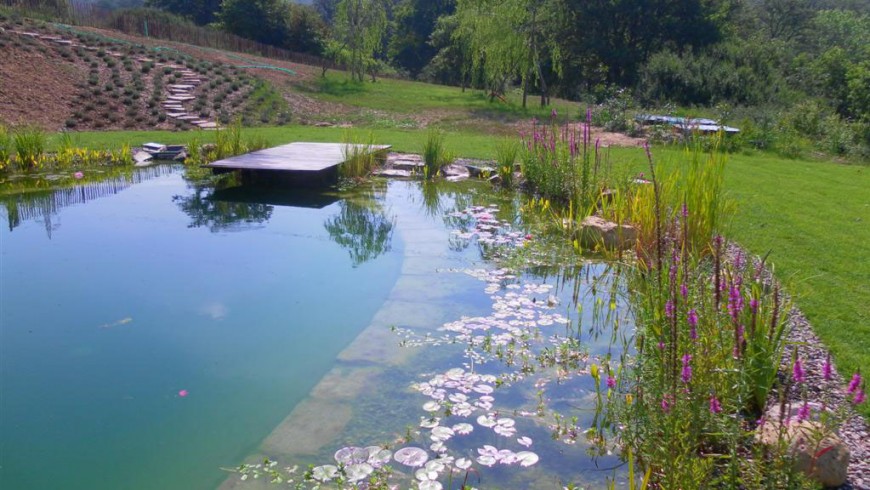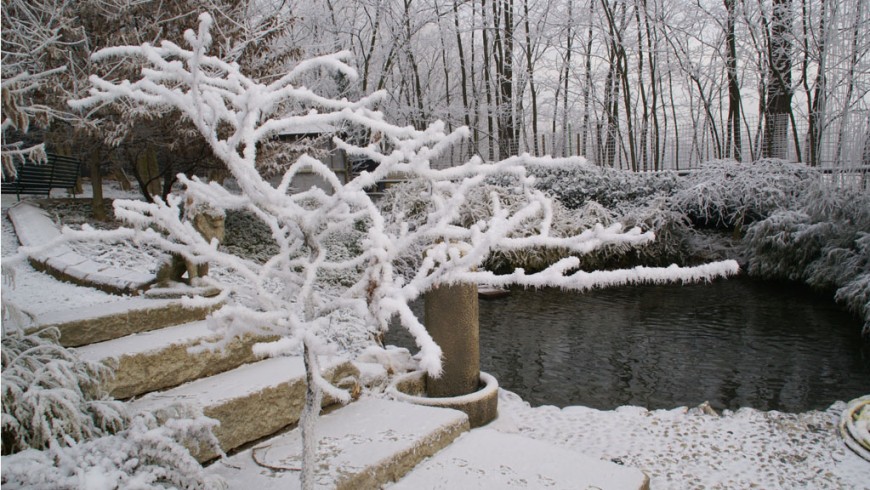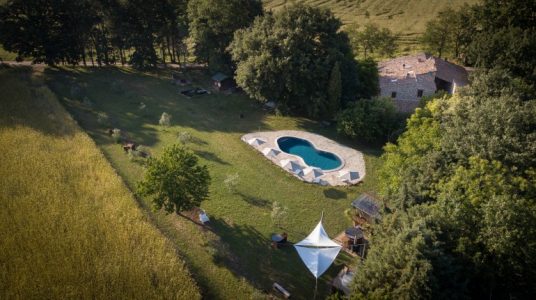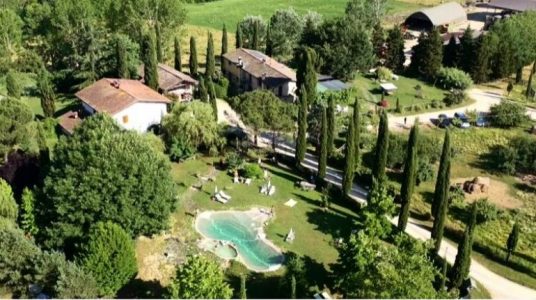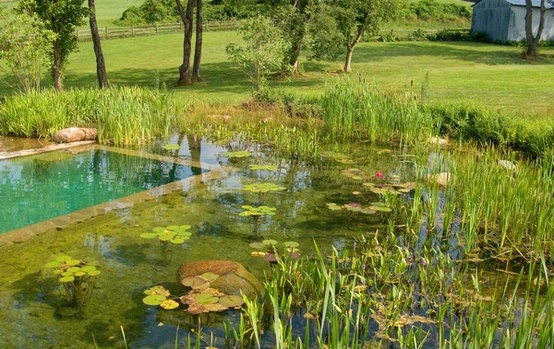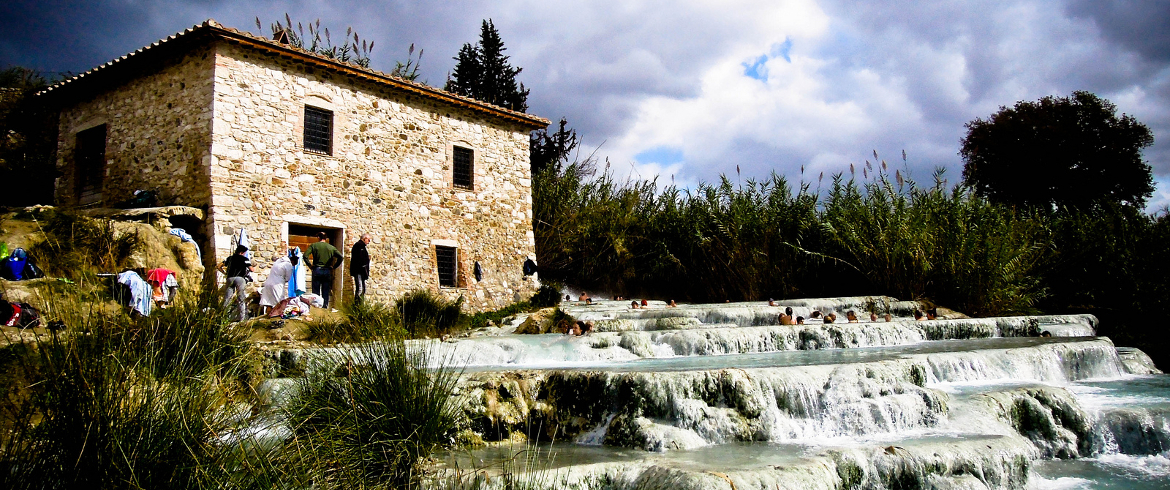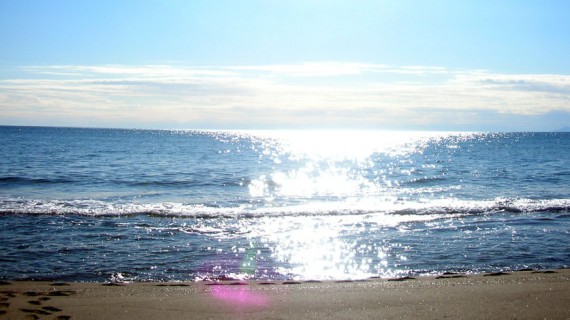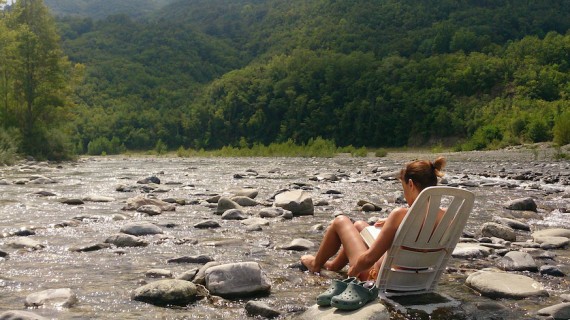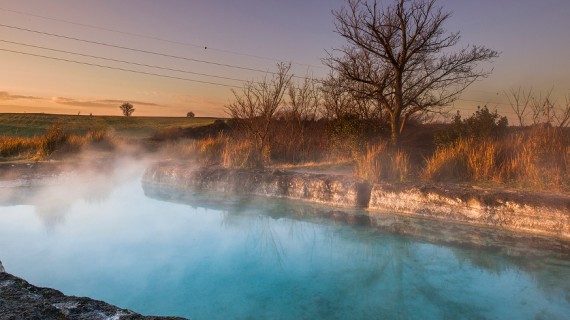In the hot summer days there’s nothing better (if you can’t go to the beach) than a refreshing dip in the pool. However, leaving aside the mere refreshing appearance there are different kinds of pool: those designed in the common sense are pools constructed in concrete and purified by chlorine and chemicals, but during the last years in Italy has caught on the bio-pool, a natural alternative useful both to people and to the environment.
Bioponds and Biopools
Starting from the artificial lakes created exclusively for the aesthetics of mansions and gardens, a new tendency has developed: build bioponds (or ecoponds), still conceived by man, but reproducing the natural characteristics of a lake and forming a real own self-sustaining ecosystem, providing a better visual impact and offering the possibility of bathing in waters completely naturally purified.
The official and international definition of biopool goes like this: a biopool is a body of water sealed to the ground and not chemically disinfected, built for bathing. The constant quality of bathing water is guaranteed through a biological and / or mechanical treatment.
Therefore a biopool is nothing but a biopond, with the only difference of a more refined design and targeted to the comfort for bathing. It is in any case a mirror of water created by men reproducing all the natural characteristics of purification of a natural lake. But if it is a closed circuit, how can they have clean water without using any chemical agent?
Phytopurification in a natural pool
The main system on which are based bioponds and biopools is that of phytopurification, 100% green and much less wasteful of physical-chemical treatments. In fact water purification is carried out due to biological reactions of aquatic plants and zooplankton that filter impurities and feed on pollutants such as nitrogen and phosphorus, in a continuous process of self-healing. However, there might be a system of filters and pumps purely mechanical, which doesn’t consider the use of chemicals or UV.
The useful plants that purify water also play a great aesthetic effect, because in addition to submerged plants that produce oxygen, there are often plants on the surface, such as beautiful water lilies and reeds. This vegetation around the water shapes in a short time an ecosystem perfectly balanced and integrated in nature.
The effectiveness of phytopurification was also demonstrated by a study at the University of Siena, by entering into a biopond various pathogens in liquid solution: immediately after entering them, the charge of bacteria was very high, while the sample taken 24 hours late showed a significant reduction, which was almost completely eradicated after 90 hours. The experiment has been done in the autumn time, when the activity of phytopurification is reduced.
How is made a natural pool
There are different kinds of biopools, depending on the area dedicated to purification and to bathing, and especially the presence or not of mechanical installations. All, however, provide for the passage of water through different modules:
• The source pond, whit a first coarse filtration by passing through gravel;
• The stream contributes to oxygenation, moving the water to the regeneration zone;
• The regeneration zone is where the plants are placed, and is separated from the underwater bathing area through a perimeter in masonry or ground, while on the surface by floating markers. Usually it doesn’t exceed 1 meter in depth, providing a fast heating of water;
• The swimming area is devoid of plants, which are all around, and has clear and purified water. In bi-room systems the two areas (regeneration and bathing) are completely separate.
• The mechanic pumping system finally re-inject water from the bathing area to the source pond, starting the cycle of purification.
A natural biopool doesn’thave any type of pumping and an equal surface between regeneration and bathing area, while the other bio-pools are divided into low, medium, high or very high technology, with photovoltaic systems providing sustainable energy for the actuation of pumps and filters. Of course a more efficient pumping means a smaller area reserved to phytopurification.
The benefits of a natural pool
A biopool or a biopond guarantee the same comfort of a traditional swimming pool in addition to various benefits for health and the environment, and why not, even for wallets.
First, phytopurification method is all-natural and allows to clean water avoiding the use of chlorine, chemicals and PH regulators, often cause of dermatitis, allergies, dryness of skin and eye irritation.
Environmentally, biopools and bioponds represent a real natural ecosystem, that enrich biodiversity and achievable even in areas subject to environmental constraints, allows maximum customization in design, aesthetics and choice of vegetation and is feasible even on sloping land, and then doesn’t require any connection to the sewer.
Finally, the maintenance of a biopool costs only one third of those of a traditional swimming pool because it has a minimum consumption of water (you only lose that which evaporates naturally), saving on the costs of chemicals, and the energy for the pumping system derives from a photovoltaic system.
Bearing in mind that a lake or a pool full of natural vegetation in winter is also a great decorative an more impressive item you can enjoy, instead of a sad ground cloth to cover!
Natural Pools in Italy
On the Italian territory there are only 9 public biopools, mapped by Associazione Italiana Acque Balneari Naturali, but there are many hotels, especially cottages, which have a biopond or a biopool to encourage integration between wellness and contact with nature.
Eco-friendly accommodation facilities with natural pools in Italy
Between the green and the blue of Tuscany
In Tuscany, in the Mugello countryside, the Bioagriturismo La Colombaia offers guests a beautiful bio-pool with a beach and a natural stone waterfall.
Then, we arrive in the hills of Grosseto, where the Sant’Egle bio-farmhouse offers a bio swimming pool with salt water, surrounded by greenery, perfect for spending a day of total relaxation. Sant’Egle is the ideal starting point for an eco-friendly holiday to discover the most beautiful villages in Italy.
The Le Castellacce farm, immersed in nature, is the perfect place for a natural holiday and digital detox. The strutta proposes a natural and zero-zero chlorine-free biopoly, where water is regenerated from aquatic plants.
Among the hills of Parma
Bed & Breakfast Counrtyhouse Hallelujah is an excellent example of a structure aimed at relax and rediscovery of nature. The stay takes place in a quaint stone cottage in a friendly and charming atmosphere, where you can enjoy a spectacular view of the valley and the surrounding fields and orchards. At the disposal of visitors, an outdoor spa area with biopool purified with salt and available even at night, MTB and trekking trails, sports activities and organization of visits to the wine cellars of Piacenza including Vigoleno and Castell’Arquato.
In Cilento National Park
Another magical place where you can test a biopool is Iscairia farm holiday, located in Marina di Ascea. This Bed & Breakfast has a wonderful view on the archaeological city of Elea-Velia, a biopond surrounded by a huge garden and an olive grove, with a family run business turned towards friendliness and quality of service.
In the heart of Umbria
To live in a real spiritual dimension, Eremito resort is undoubtedly the most suitable destination: an old stone monastery, renovated according to green building. The biopond dug into the rocks, the overview of the green valley and the completely vegetarian menu based on the collection from the organic garden are all elements that make this wonderful retreat an oasis for senses.
Among 25 hectars of private forest
Relais Bella Rosina, a four-star hotel housed in an eighteenth century farmhouse, provides the intimacy of a private home with the possibility of making special meetings in the surrounding green area: foxes and deers are just some of the animals that inhabit the zone. The structure is characterized by sophistication and elegance, rooms equipped with all comforts and a bio-pond that will make you feel part of nature.
